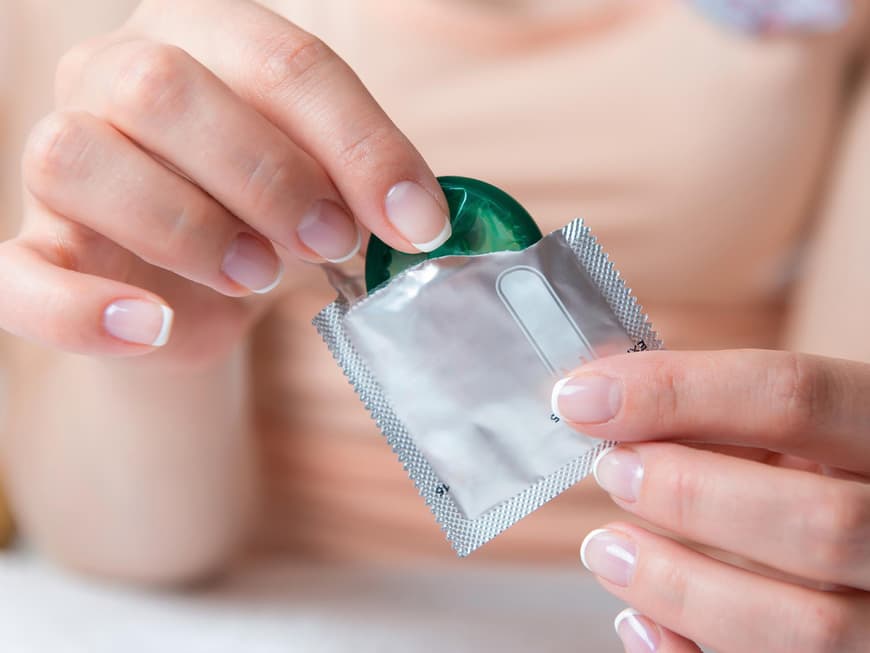There are the funny posters with the motto " Mach's mit " or " Ich mach's" from the BzgA (Federal Center for Health Education), which have been hanging all over the city for many years. The posters are not only colorful but also informative. A face is combined with a personal message on how to protect yourself from HIV and other sexually transmitted infections (STIs). Until now, they were primarily intended to draw attention to condom protection against HIV and syphilis in particular. Under the motto "If it itches and burns, I'll go to the doctor. I just want to know what's going on", the focus was expanded to include all STIs. Because there are more sexually transmitted infections than HIV, syphilis and chlamydia. And since the spring of this year, there has been a new campaign: No matter what you are into. Use condoms. The great thing about it is that it addresses everyone, whether hetero, homo or bi, pansexual, queer, woman, man, intersex or whatever. Because safer sex affects us in certain life situations.
STIs are rarely recognizable at first glance
Safer sex really does affect everyone who has changing romantic partners and is therefore not just a matter for gay men. However, many people don't seem to have realized this yet. Obviously, many people still think that safer sex is only for other people. "Nothing can happen to me! I'll take care of myself!" is something I hear more often. Yet we are currently seeing an increase in new infections with syphilis. But protection against HIV has also become less important for many people in recent years. Not least because there are now drugs that make it possible to live with an infection. The problem with sexually transmitted infections is that you cannot usually see whether someone is infected or not. Chlamydia, for example, the most widespread STI, can be completely asymptomatic. However, the consequences are serious: they can ultimately lead to infertility and, according to the BZgA, mainly affect adolescents and young adults. The infected person is unaware of the infection, but happily infects other sexual partners during unprotected sex. However, the possibilities of infection with STIs are far from exhausted with sexual intercourse. And condoms are not the only way to protect yourself from sexually transmitted infections (STIs)! Safer sex is therefore much more than just using condoms. But many people don't know that either.
Who should protect themselves and where can they get information?
Everyone who has sex with new or changing partners - whether beginners, advanced, young, old, men or women - should practise safer sex. This also applies in particular to external relationships in otherwise faithful partnerships! But not everyone actually feels addressed. Older people, for example, who fall in love again for the first time after a relationship that has lasted decades in some cases. "I was married to my husband for 40 years. Now he has left me and I would like to enter into a new partnership. Do I have to pay attention to anything during sex now?" This is a question that sometimes comes up in conversation. You can also talk about safer sex together and find out which methods are best for which practices. Anyone who has already contracted an STI should definitely tell their sexual partner. And if you want to find out more, you have various options: The BzgA or Aids-Hilfe have all the important information on the Internet. If you are lucky, you will also find information at school and there are advice centers in every major city. Think about your own safety and that of your partner!
Anja Drews - Sexologist for ORION








